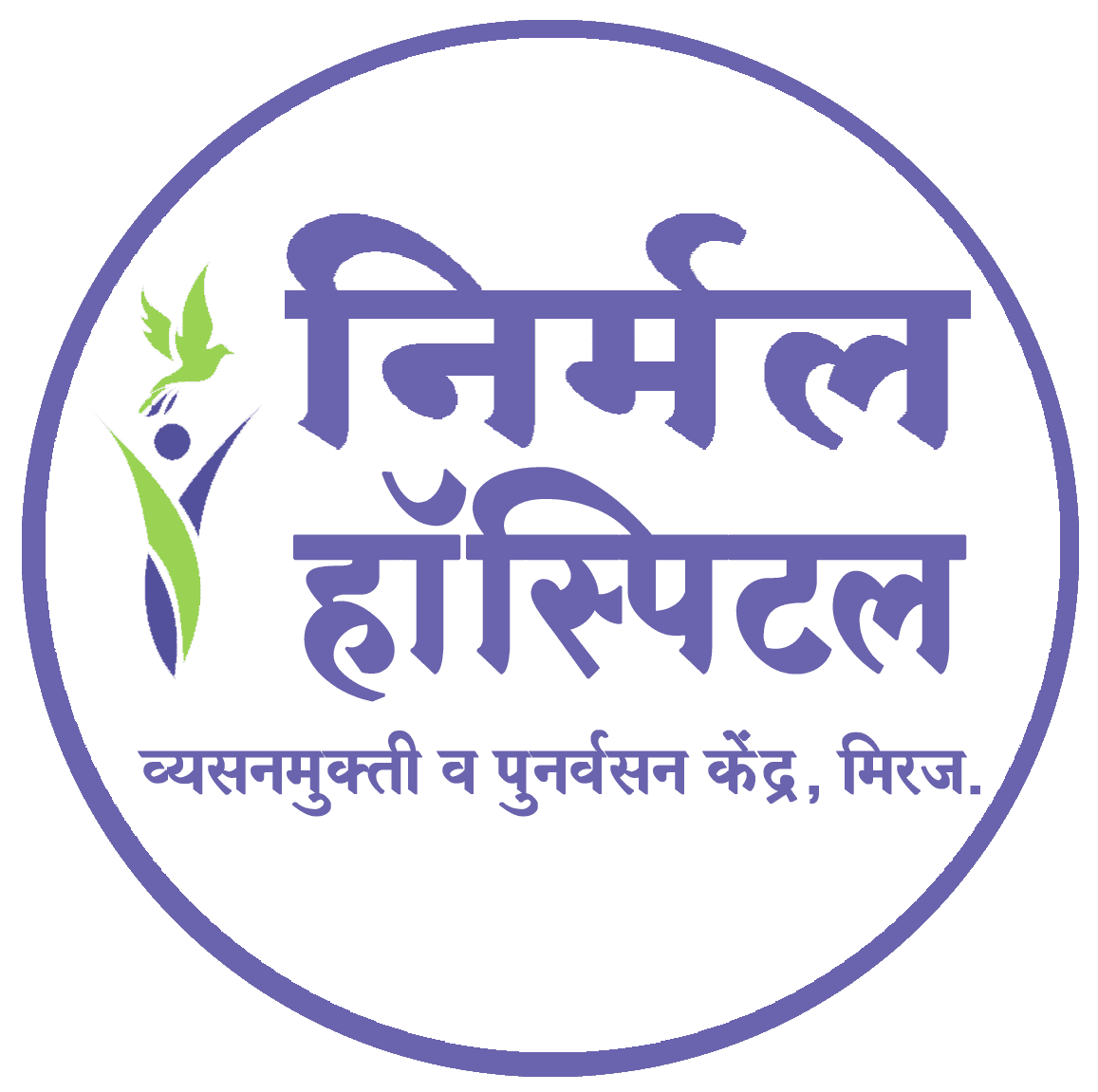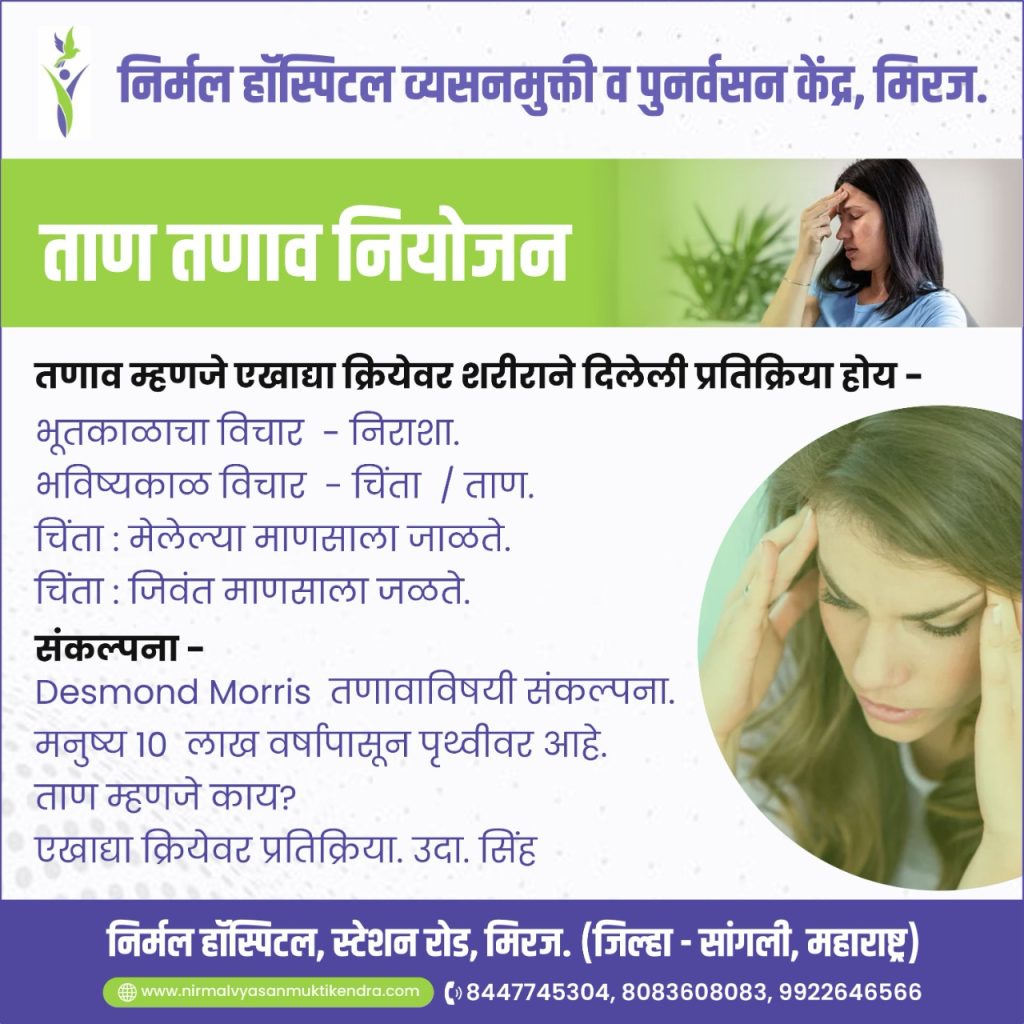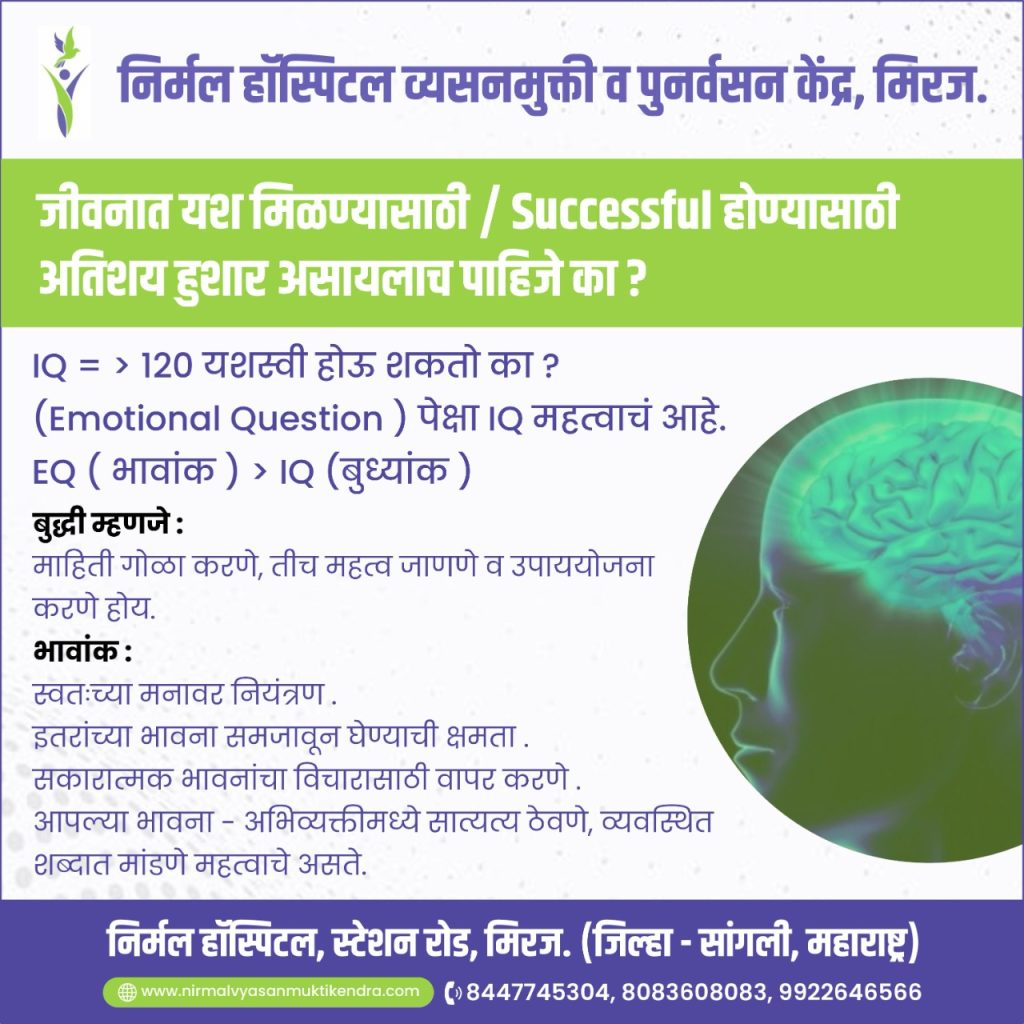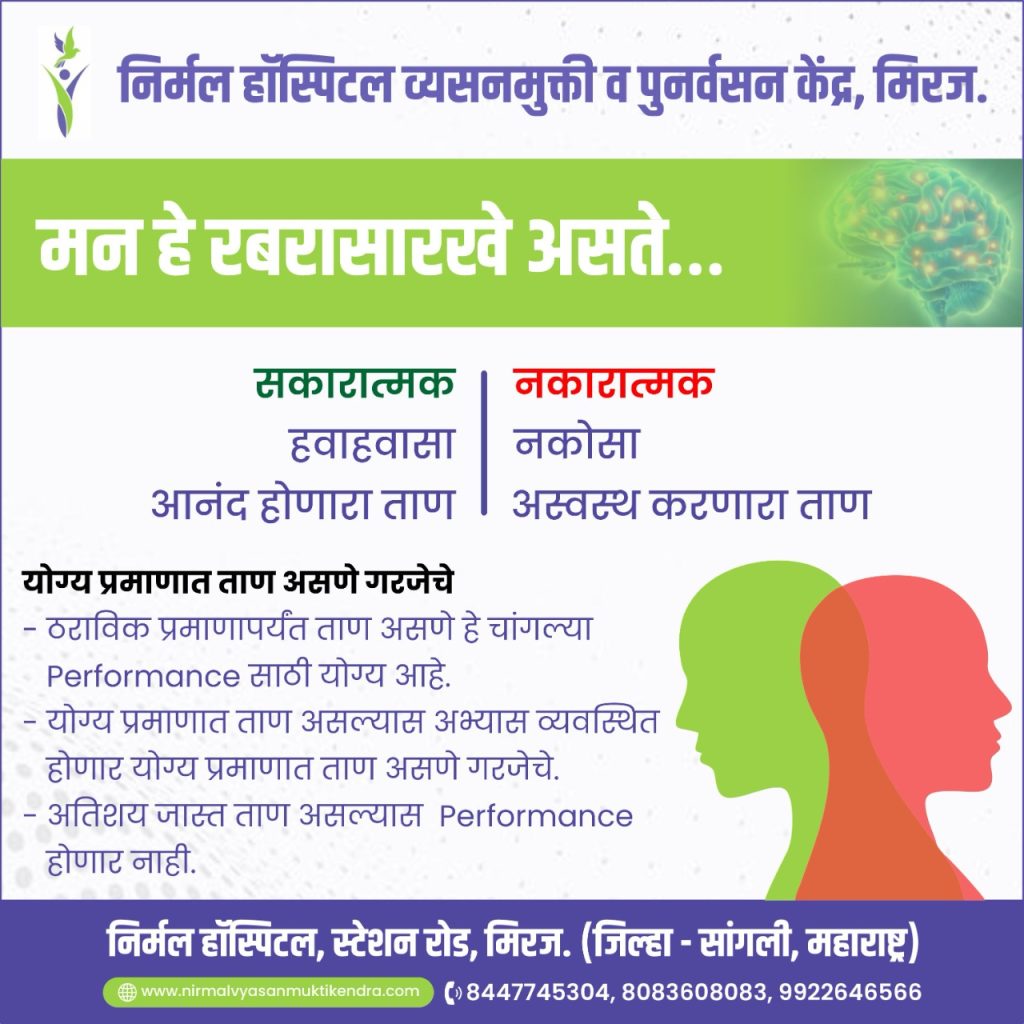चिंतारोग (काळजीरोग )/ नैराश्य उदासीनता/भयगंड
या आजारामध्ये रुग्णास उदास, एकाकी व निराश वाटते, रडू येते, झोप भूक कमी लागते, वजन कमी किंवा जास्त होते, स्वभाव चिडचिडा होतो, आत्महत्येचे विचार येतात, आत्मविश्वासाची कमतरता जाणवते.
नैराश्य ही मनाची एकाकीपणा आणि निराशा जाणवणारी अवस्था आहे. सर्वाधिक आढळणारा मानसिक आजार आहे. या आजारामुळे नेहमी उदास वाटते, दैनंदिन कामे करण्याची इच्छा होत नाही आणि आनंददायक गोष्टींत कमी रस वाटतो.

BACKGROUND
- Hippocrates used the term ‘Melancholia’ (Greek for ‘Black Bile’)
- The term Depression is derived from the Latin word deprimere (meaning ‘to press down’)
- Emil Kraepelin: ‘Depressive states’ as part of ‘Manic-Depressive Psychosis’
- Henry Maudsley: ‘Affective disorders’
- Kurt Schneider: ‘Endogenous’ (melancholic) and ‘Reactive’ (neurotic) types
- DSM-I: Depressive Reaction
- DSM-II: Depressive Neurosis
- DSM-III onwards: Major Depressive Disorder
- ICD-10: Depressive Episode / Recurrent Depressive Disorder
CLINICAL FEATURES
- Depressed mood that is clearly abnormal for the person
- Anhedonia (inability to derive pleasure from normally pleasurable activities)
- Decreased energy / increased fatiguability
- Sleep disturbance (usually early morning awakening)
- Appetite disturbance (usually decreased + wt. loss)
- Diurnal mood variation (usually worse in mornings)
- Reduced concentration
- Psychomotor agitation/retardation
- Feeling hopeless/helpless/worthless
- Suicidal ideas / plans / acts
DEPRESSION VS. BIPOLAR DISORDER
Mood disorders are also called ‘Affective’ disorders
The 2 main Mood disorders
- Depression
- Bipolar disorder
In Depression, the patient experiences one or more episodes of low mood Also called ‘Unipolar disorder’
In Bipolar disorder, the patient experiences:
- Episodes of both low mood (Depression) and abnormally elevated mood (Hypomania or Mania), (or)
- 2 or more episodes of abnormally elevated mood (Hypomania or Mania)
PSYCHOTIC SYMPTOMS
- Both delusions and hallucinations can occur
- Mood-congruent psychotic symptoms:
Delusions of:
- Guilt
- Worthlessness
- Hypochondriasis
- Nihilism (body rotting, world ending soon, etc.)
- Voices accusing or condemning the patient
- Mood-incongruent psychotic symptoms:
- Delusions of reference or persecution
- Voices speaking about affectively neutral topics
DEPRESSION IN BIPOLAR DISORDER
- Depression occurring in bipolar disorder is generally clinically indistinguishable from unipolar depression
- So, in any first episode of depression, the possibility of bipolar disorder needs to be borne in mind
- A patient with significant Depression may not be able to recall any happy memories (including hypomanic / manic episodes). So, always useful to get information from a family member/friend who has known the patient for many years
- 40% of patients with Bipolar disorder are initially diagnosed as Unipolar Depression
Some features that may suggest bipolar
- Atypical features (increased sleep, increased appetite)
- Psychomotor retardation
- More frequent episodes
- Family history of bipolar disorder
- Lower age of onset
- Male gender (equal gender prevalence for bipolar)
- More abrupt onset
DEPRESSION IN ICD-10
- F32 Depressive episode
- F32.0 Mild
- F32.1 Moderate
- F32.2 Severe without psychotic symptoms
- F32.3 Severe with psychotic symptoms
- 30 mood-congruent psychotic symptoms
- 31 mood-incongruent psychotic symptoms
- F33 Recurrent depressive
- This diagnosis is used for those with 2 or more episodes of depression
- The previous diagnosis (Depressive episode) is used for the first episode of depression
- In Recurrent depressive disorder, rate the current episode as mild, moderate or severe as above, or whether the patient is currently in remission
ENDOGENOUS VS. REACTIVE DEPRESSION
These subtypes are no longer included in ICD or DSM
Endogenous
- Depression occurring spontaneously without any external stressor
- Also called ‘Melancholic’ Depression / ‘Psychotic’ Depression
- Characterized by prominent biological /somatic symptoms of depression
- More severe symptoms (e.g. Psychomotor retardation) / psychotic symptoms
- May respond better to TCAs than SSRIS
- More likely to need Antipsychotics / ECT
Reactive Depression:
- Depression occurring in response to a clearly identified external stressor (e.g. Bereavement]
- Also called ‘Neurotic’ depression
- Less severe
- More affective symptoms (e.g. Imitability, anxiety, guilt, etc.)
- Significant overlap with ‘Adjustment disorder’
- Spontaneous recovery more common
ATYPICAL DEPRESSION
In ‘Typical’ Depression: there is reduced sleep, reduced appetite and weight loss
In ‘Atypical Depression: there is hypersomnia (increased sleep), increased appetite and weight gain
Other
- Feeling of heaviness in arms and legs (‘Leaden paralysis’)
- Excessive sensitivity to interpersonal problems (‘Interpersonal rejection sensitivity’)
- Bipolar Depression tends to have more Atypical features than Unipolar Depression
- Seasonal Affective Disorder is characterized by Atypical features
- Atypical Depression may respond better to MAOIs than TCAs or SSRIs
EPIDEMIOLOGY – UNIPOLAR DEPRESSION
- Lifetime prevalence is about 15%
- Annual incidence is about 5%
- About twice as common in women than men
- Average age of onset: about 30 years
- Peak age groups of onset:
- 30 to 44 years
- 18 to 29 years
AETIOLOGY OF DEPRESSION – GENETICS
- First degree relatives have a 3-fold increased risk of depression
- Genetics less important for late-onset depression
- Two susceptibility loci MDDI and MDD2 (on chromosomes 12 and 15 respectively) have been identified
- Other potential genes: TPH2, HTR3A, HTR3B genes
- Polymorphism of the serotonin transporter (SLC6A4) gene (on chromosome 17)-5HTTLP: short allele homozygosity or heterozygosity associated with increased risk of depression, in response to stressful life events, than long allele homozygosity
- Genetic factors may also mediate drug response or side-effects
AETIOLOGY OF DEPRESSION – PSYCHOSOCIAL
- Recent stressful life events (especially a loss-e.g. bereavement)
- Loss of parent before age 10
- Living alone / Lack of social support
- Chronic pain
- Alcohol and substance misuse
- Medication: steroids, anti-hypertensives, etc.
- Vascular: stroke & CAD increase risk of depression and vice versa














Leave a Reply